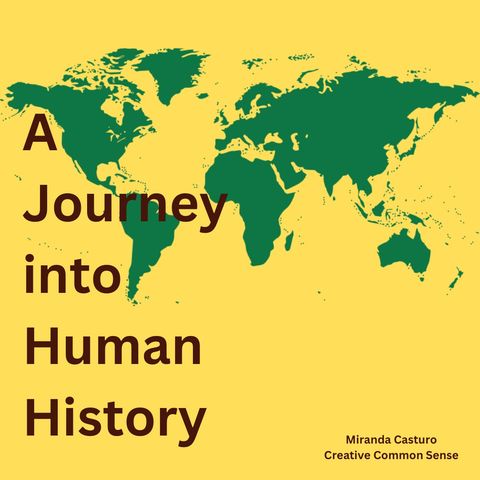Exchange in East Asia (Corrected Audio)

Nov 15, 2023 ·
37m 37s
East Asia was drawn into the network of global maritime trade in the sixteenth and seventeenth centuries. The Portuguese and Spanish arrived in Japan when powerful daimyos were each fighting...
show more
East Asia was drawn into the network of global maritime trade in the sixteenth and seventeenth centuries. The Portuguese and Spanish arrived in Japan when powerful daimyos were each fighting to unify the country and bring it under their rule. Guns brought by Europeans began to play an important role in Japanese warfare. Many Japanese also began to convert to Christianity. In 1603, Tokugawa Ieyasu became the shogun of a united Japan, and wishing to control the samurai and fearing Christian subjects would not be loyal, he prohibited Christianity, banned the entry of the Portuguese and Spanish, and prohibited Japanese from leaving the country except on government missions.
Following the expulsion of the Mongols, China also turned inward. The first Ming emperor, Hongwu, forbade foreign trade. Needing money, however, the government permitted trade with Europeans in the second half of the sixteenth century. Trade brought prosperity for Chinese farmers, artisans, and merchants, though changes in their lifestyle alarmed conservatives. However, famines, floods, and the inability of the Ming government to solve China’s problems led to the dynasty’s overthrow in 1644. The Manchu Qing dynasty attempted to reassert traditional Confucian values while still trading with Europe.
Korea’s Joseon dynasty, a vassal of China, also tried to structure its society on a Confucian model. The seventeenth-century Silhak movement in Korea advocated the study of science and technology in order to solve social problems.
All images referenced in this podcast can be found at https://openstax.org/books/world-history-volume-2/pages/2-3-exchange-in-east-asia
Welcome to A Journey into Human History.
This podcast will attempt to tell the whole human story.
The content contained in this podcast was produced by OpenStax and is licensed under a Creative Commons Attribution License.
Access for free at https://openstax.org/books/world-history-volume-2/pages/1-introduction
Podcast produced by Miranda Casturo as a Creative Common Sense production.
show less
Following the expulsion of the Mongols, China also turned inward. The first Ming emperor, Hongwu, forbade foreign trade. Needing money, however, the government permitted trade with Europeans in the second half of the sixteenth century. Trade brought prosperity for Chinese farmers, artisans, and merchants, though changes in their lifestyle alarmed conservatives. However, famines, floods, and the inability of the Ming government to solve China’s problems led to the dynasty’s overthrow in 1644. The Manchu Qing dynasty attempted to reassert traditional Confucian values while still trading with Europe.
Korea’s Joseon dynasty, a vassal of China, also tried to structure its society on a Confucian model. The seventeenth-century Silhak movement in Korea advocated the study of science and technology in order to solve social problems.
All images referenced in this podcast can be found at https://openstax.org/books/world-history-volume-2/pages/2-3-exchange-in-east-asia
Welcome to A Journey into Human History.
This podcast will attempt to tell the whole human story.
The content contained in this podcast was produced by OpenStax and is licensed under a Creative Commons Attribution License.
Access for free at https://openstax.org/books/world-history-volume-2/pages/1-introduction
Podcast produced by Miranda Casturo as a Creative Common Sense production.
Information
| Author | Miranda Casturo |
| Website | openstax.org |
| Tags |
Copyright 2024 - Spreaker Inc. an iHeartMedia Company
